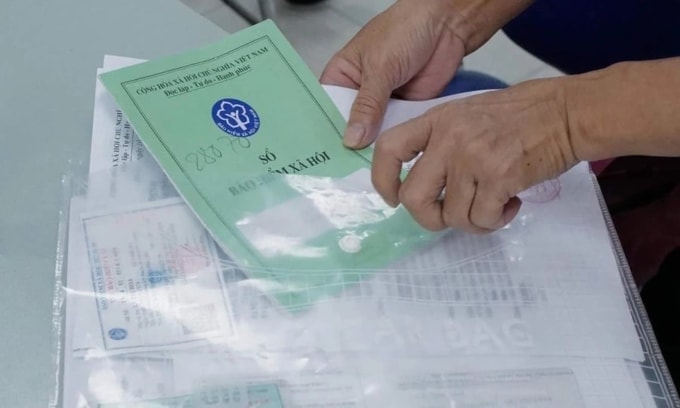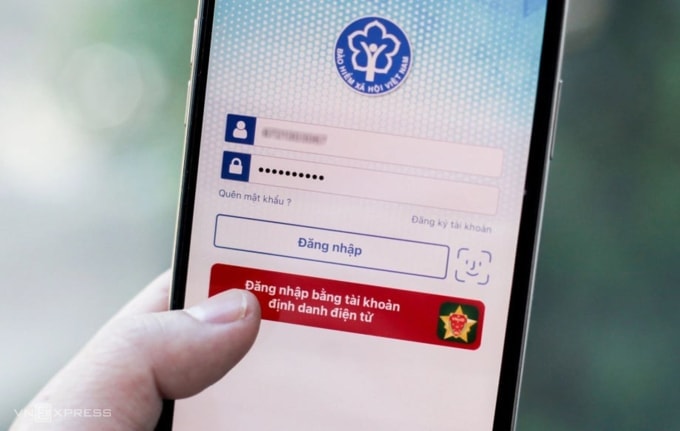Electronic social insurance books are expected to be applied from July 1 and issued no later than January 1, 2026, with the same legal value as paper books.

The Ministry of Home Affairs is seeking comments on the draft Decree regulating electronic transactions in the field of social insurance and the National Database on Insurance, expected to take effect from July 1.
The draft clearly states that the electronic social insurance book is issued by the Social Insurance agency to each employee in the electronic environment. This book contains information like the paper version and is encoded according to regulations, including the code; basic personal information such as date of birth, gender, nationality, ID card or passport; social insurance payment process such as payment period, payment basis, contribution rate to social insurance funds, occupation, work, unit; information on benefits, settlement of regimes...
The electronic book will be linked to the participant's level 2 VNeID account and issued no later than January 1, 2026, with the same legal value as a paper book.
The Social Insurance Book is a document recording the employee's participation in Social Insurance as a basis for resolving policies. This is not an asset, so according to the 2015 Penal Code (amended and supplemented in 2017), it is not allowed to buy, sell or mortgage Social Insurance Books.
Social insurance records and procedures will be simplified from paper transactions to electronic forms. Specifically, agencies, organizations and individuals who have completed electronic transactions in the field of social insurance according to regulations do not have to perform other methods and are recognized as having completed the corresponding procedures. Participants who have information to perform social insurance on VNeID level 2 linked to the electronic social insurance book will not have to present paper records for comparison or proof.
Profile components that have been digitized or shared from national and specialized databases according to regulations are not required to be provided by people and businesses when performing administrative procedures on social insurance.
The draft decree also states that the National Insurance Database will include 9 groups of information. Specifically, basic personal data; citizen contact information; household information such as household code, address, list of household members; social insurance information such as code, participant management unit, method, payment process; health insurance information such as benefit level, place of medical examination and treatment registration; unemployment insurance information such as benefit payment process, unemployment insurance payment period are reserved as the basis for calculating the benefit period.
In addition, there is also a group of information about the employer including name, business code, tax code, address, phone number, email, business line; a group of basic health information and social security information.

Agencies, organizations and individuals exploit and use data from the National Insurance Database via the National Data Portal, National Public Service Portal, Ministry of Finance's Electronic Information Portal and other forms provided by competent authorities.
Agencies, organizations and individuals have the right to extract their information from the National Insurance Database. The extracted data will be digitally signed by the Ministry of Finance and will have the same value as a confirmation document from a competent authority. Organizations are not allowed to request individuals to provide relevant documents if they have extracted their information from the National Insurance Database.
Nationwide, there are more than 621,000 enterprises transacting electronically with the Social Security Agency, more than 36 million accounts using VssID; more than 5.5 million times using ID photos on VssID to complete medical examination and treatment procedures. All medical facilities nationwide have implemented medical examination and treatment using chip-embedded citizen identification cards... helping to reduce procedure time, save costs of printing health insurance cards and administrative management costs.
The Social Insurance Agency's system has authenticated with the National Population Database more than 98.5 million demographic information, of which about 88.5 million people are participating in social insurance, health insurance, and unemployment insurance policies.
TH (according to VnExpress)